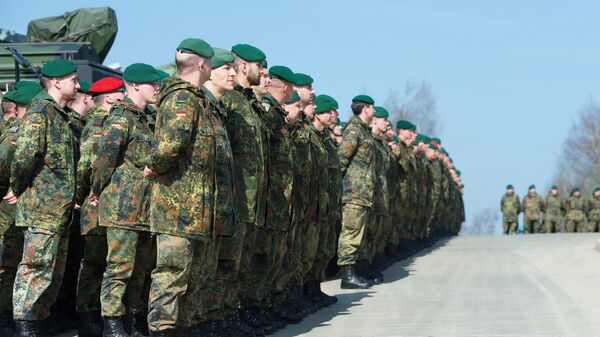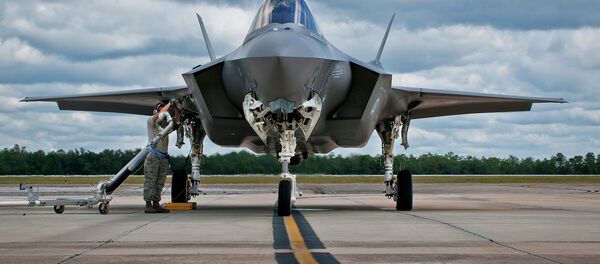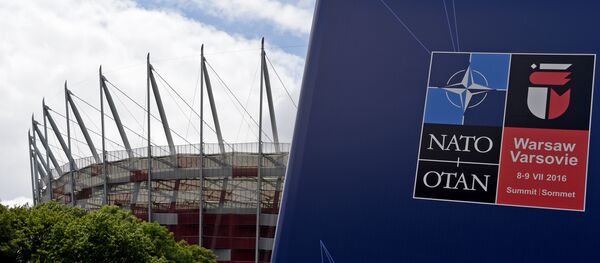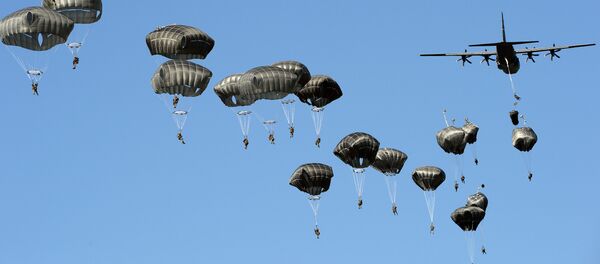"In the past few months, we managed to do more than we had in the last ten years," NATO Secretary General Jens Stoltenberg told the newspaper, referring to intensified cooperation between NATO and the EU.
"But the relationship is not without complications," Aftenposten Europe correspondent Oystein K Langenberg explained.
"Some countries of the EU, such as Germany and France, would like to see much closer defense cooperation under EU auspices, which could take place independently of the United States and NATO," the journalist noted. Moreover, "the British, who had been among the most vocal critics of this idea, voted to leave the EU, leading to renewed discussions" regarding a European Defense Force.
"The day after the British voted no to continued membership in the EU, the foreign ministers of Germany and France put forward the idea of a 'European security pact'." The proposal, Langenberg explained, emphasized the idea of "the EU as an 'independent global power', and call for the EU to establish a 'permanent civil-military chain of command'."
"The EU's new global strategy, presented a few days later, also calls for closer military cooperation under the auspices of the EU, and suggested that the bloc needs military forces which can act independently of the United States."
Naturally, Langenberg wrote, "NATO diplomats aren't exactly thrilled over the idea. Stoltenberg himself personally spoke out against the creation of [an EU] military headquarters and command structure."
"The important thing is to avoid duplication. NATO's command structures have been well tried and tested over the course of decades," the secretary general warned.
Sources within NATO, furthermore, believe that a European defense force would spread out scarce military resources even further.
"The last thing Europe needs right now is to alter its underlying security structures. In the worst case, this could lead to the re-nationalization of security policy and the weakening of NATO," an unnamed NATO official told Aftenposten.
The subject of pan-European security was discussed during dinner at the NATO Summit on Friday. According to Norwegian Prime Minister Erna Solberg, while the EU certainly has areas to focus on in terms of security policy, the focus should be concentrated on 'soft power', institutional construction and joint police work. "There is no sense in starting to create alternative command structures," she warned.
For his part, Mr. Biscop suggested that some dual structures may be possible, but also stressed that this was likely a question for the future. In his view, the possibility of EU countries merging their defenses could even be good for the North Atlantic Alliance.
"Such forces could act under numerous commands – that of its own government, the EU, NATO or the UN," the analyst said. Moreover, the analyst even suggested that Washington would not necessarily fight against closer defense cooperation between EU countries independent of NATO.
"My impression is that they have become more pragmatic when it comes to this question; NATO has ceased to be some kind of religion. For the Americans, the most important thing is that Europe increasingly takes responsibility for its own defense. Under what flag that occurs is less important," Biscop noted.
For his part, Norwegian Foreign Minister Borge Brende suggested that that he does not fear increased competition between the EU and NATO, but emphasized that the organizations should complement one another. The minister also stressed that the EU's members must find a consensus on the deepening of EU defense cooperation.
However, there may be a hitch. "Countries in Eastern Europe such as Poland have made clear that when it comes to defense policy, they want to work [only] within the framework of NATO," Langenberg concluded.





